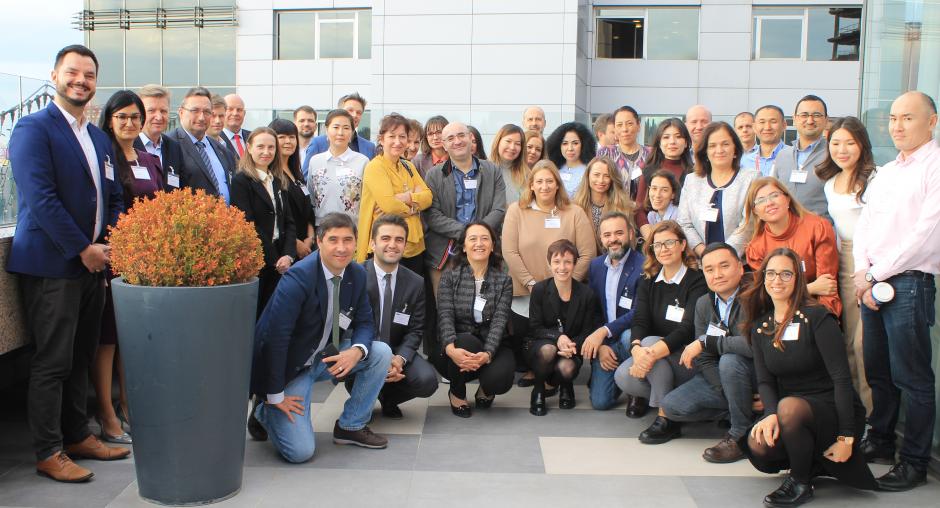OSCE Field Operations and other OSCE Executive Structures trained on climate change and security

On 23 and 24 November 2022, 40 representatives from the OSCE Field Operations and other OSCE Executive Structures gathered in Istanbul to participate in a climate change and security training organized by the Office of the Co-ordinator of OSCE Economic and Environmental Activities and the Berlin-based think tank, adelphi.
“Climate change is one of the most pressing issues of our time. Its impacts are evident across the OSCE area,” said Esra Buttanri, Senior Advisor at the Office of the Co-ordinator of OSCE Economic and Environmental Activities. Drawing the attention to the 2021 OSCE Ministerial Council Decision on climate change, which tasks the relevant OSCE Executive Structures with assisting the OSCE participating States in implementing its provisions, she added, “this training contributes to creating a shared understanding of climate change and security issues among the OSCE Field Operations and other OSCE Executive Structures and paves the way for more efficient and coherent OSCE support in addressing the various challenges caused by climate change.”
“This event demonstrated how relevant the impacts of the climate crisis are for the work of the OSCE across different regions,” underlined Benjamin Pohl, Head of Programme Climate Diplomacy and Security at adelphi. “It also showed the many ways in which OSCE Field Operations can use and are already using co-operation around climate change issues to enhance stability and build sustainable peace.”
“This training helped us to acquire in-depth knowledge on climate-related risks and risk reduction measures, which are highly relevant for our work with our stakeholders in the parliament, governmental agencies, local administrations and civil society,” said Elton Qendro, National Programme Officer on Economic and Environmental Issues at the OSCE Presence in Albania.
“Addressing the challenges caused by climate change can contribute to food and water security as well as prosperity and stability on both banks of the Dniester/Nistru river” said Michael Schieder, Senior Political Officer at the OSCE Mission to Moldova.
"This training has enabled us to learn from each others’ experiences and best practices within and across regions and provided us with insights for our future work,” said Umid Pulatov, National Economic and Environmental Officer at the OSCE Project Co-ordinator in Uzbekistan.
Representatives of diverse teams from all OSCE Field Operations along with the OSCE Parliamentary Assembly, the OSCE High Commissioner on National Minorities, and the OSCE Representative on Freedom of the Media participated in the training.
The Training on Climate Change and Security for OSCE Field Operations and Other OSCE Executive Structures was organized within the framework of the OSCE extra-budgetary project, Strengthening responses to security risks from climate change in South-Eastern Europe, Eastern Europe, the South Caucasus, and Central Asia, which is implemented in partnership with adelphi and funded by Andorra, Austria, Czech Republic, Finland, France, Germany, Italy, Liechtenstein, Luxembourg, Norway, Poland, Sweden, and the United States.
